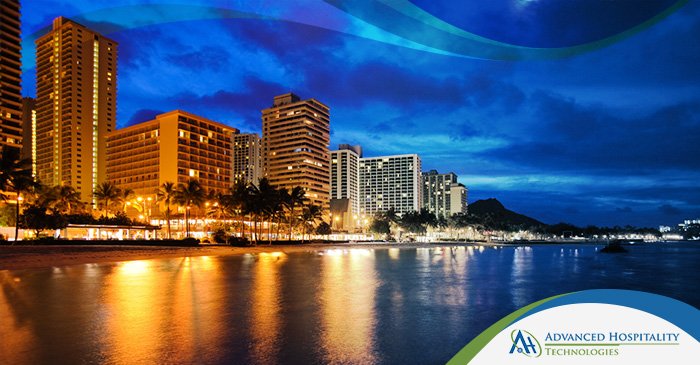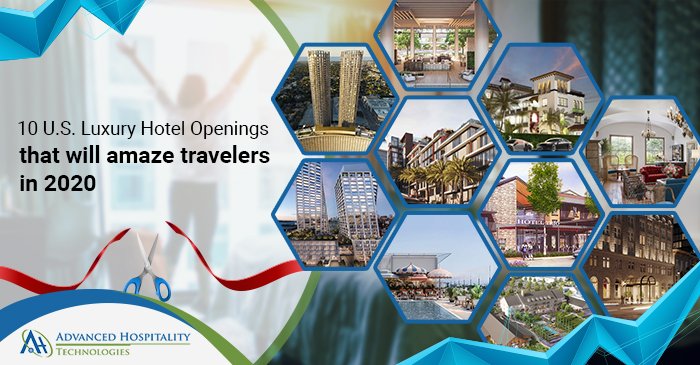Hotel brand change, also known as rebranding, is a common phase in the life of every hotel franchise. In his research, Hotel Brand Conversions: What Works and What Doesn ’t, Chekitan Dev Ph.D. discusses that one out of three hotel brands have experienced hotel brand change since they were established.
Hotel brand & technology conversions occur due to a variety of reasons like:
- A change in corporate strategy,
- Change ownership,
- Local competition,
- Simple aging of the facility, and
- Other miscellaneous reasons.
After the successful conversion of the Holiday Express MSY, Austin Khan (Chief Investment Officer – Laurus Corporation) claimed that:
“… the extensive renovation program will enhance the hotel’s brand in a well-performing marketplace, as well as increase the asset’s performing value…”
To preserve the value of an asset hotel owners must place great emphasis to assure that everything from the hotel staff, partners, technology infrastructure, and processes are synced with the new brand standards & compliance requisites. Hotel brand conversion, therefore, requires careful planning, adept implementation, and patient observation of new changes.
Results of Brand Change
Dr. Chekitan’s research had some great conclusions for hotels that went through a brand change. When compared to similar hotels that did not experience brand conversion, his research concluded that brand change leads to:
- On average, a 6% increase (approx.) was observed in hotel occupancy.
- Revenue increased by 4% (approx.), ADR growth by $9, and GOPPAR improvement by 3%.
- An average increase in gross operating profit by $163,000.
- Increase in occupancy for hotels that convert from independent to brand, decrease in occupancy for hotels that convert from brand to independent.
- Hotels that converted to a brand outside their original brand umbrella experienced an increase in performance
- Hotels that stayed in the same brand family experienced no increase in performance.
Brand Technology Change
The modern tech-savvy customer demands a more ‘hyper-personalized’ and ‘digitized’ service experience. This includes everything from smartphone apps, personalized promotions, automated check-ins, signage services, etc.
In the case of the recent La Quinta hotels & resorts acquisition by Wyndham Group, there is great potential for the former brand to establish itself further with new hotel technology standards. Hotel technology is a great driver to attract new guests to your hotel. A brand technology change can be a great prospect for hotels to customize guest rates, enhance existing amenities, and digitizing human services.
When undergoing a brand change, hotel management technology is probably the most complex aspect to plan, execute and monitor. Hotel technology conversions involve several factors, that include:
- Implementing a new Property Management System
- Installing new Intrusion Detection & Protection Systems
- Conforming to Security Standards & Risk Compliance Policies
- Hardware Compliance – for re purposing, upgrades or decommissioning
- Technology Floor Planning & Renovations
- New Network Infrastructure
Brand conversions usually involve the development of a professionally managed robust technology infrastructure. This means redeployment of hardware, rooms, installation of new software, and a technology partner to manage this new infrastructure.
A major component of technology change is having a sound online presence through a website, social networks, and online press. Hotels that do not manage their online information and social feeds tend to get lower review ratings. Trekksoft report in their article how 95% of sampled travelers read online reviews before booking hotels. A managed technology partner can also help your hotel make great strides in establishing a strong online presence too.
The Internet of Things is rapidly shaping trends in the hospitality industry and has become a determinant factor for hotel competitiveness. Integration of hotel services with connected devices is very common nowadays, allowing hotels to interact with guests and obtain their personal information. This synchronization of information allows hotels to deliver instant personalized services including localization, business services, special promotions, predictive analysis and much more.
IoT also accompanies several incentives like back-office efficiencies, new in-room amenities, imminent cost savings, mobile applications, and even augmented reality experiences. While a brand technology change is great for your hotel, do keep in mind the various vulnerabilities that latest technologies accompany.
Educating Staff & Management
Implementing brand change at hotels can be complicated on the “people level” since the staff and management have loyalty to their current brand name. The new brand name will come as a challenge for the staff, who will even consider it an enemy.
It is essential to give your staff & management to include management & staff in the brand conversion process. Your people will then have a sense of belonging and pride towards the new brand name. There are several interesting ways to engage your staff in brand conversions like team meetings, training sessions, local FAQ’s & manuals, and official presentations.
Do keep in mind that brand changes bring along differing payroll processes. The new brand must ensure that employees will be accustomed to their previous brand policies, therefore, salary disbursements must be made on time and with minimal errors.
Bear in mind that your staff & management have a major share in your guest satisfaction ratings. Employees who embrace brand changes will deliver a premium customer service experience to all guests when they are part of the conversions.
Brand and technology change is a great opportunity for hotel management and staff. As the owner, you must instill the belief and strength of the new brand standards & technology. Employees have an opportunity to grow as hoteliers, giving them the incentive to train over new technologies and operational processes.
New Processes
A brand change is most crucial when it comes to hotel processes like bookings, payments, data handling, information protection, vendors etc. Usually, these changes in hotel processes are proceeded with after careful discussions between the executive & managerial bodies fo the two brands.
Rooms will require new toiletries, stationery, and cutlery, the lobby will require a completely new signage system, installation of new POS, and so on. Brand change is never a low-cost migration to a new brand name, it requires careful technology planning and project management to ensure you have costs under control. This is usually where a technology general contractor can be helpful to budget for changes, design new processes, and manage vendors.
The real brand migration process, however, comes out to be the PMS or property management system. Brands deploy different interfaces (2-way or 1-and-a-halfway) that may require migrating to the parent brand and can prove to be brilliant for your hotel considering the process efficiencies it brings along.
For instance, La Quinta’s acquisition by Wyndham demands all La Quinta properties to convert their standard PMS to ORACLE Opera.
A brand change can also accompany multiple technologies to manage the security of hotel, staff, and guest information. The increase in data hacks over the last 6 years has alerted hotel owners to take precautions with their guest data. The Marriott hack last year was one of the most prominent and is still fresh in memory.



